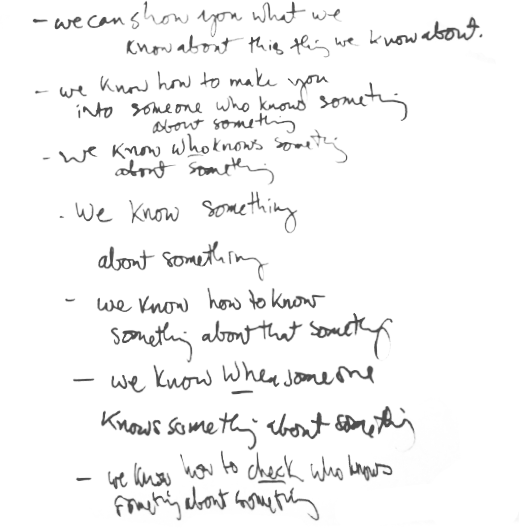
Within religion, God’s calling of a disciple (see DISCIPLINE) to a particular role in his/her spiritual community; similar to, but not identical with, the secular “career.” Otherwise, the feeling of being called (“by whom?” remains, in this case, an intractable question), or the sense of being meant for a particular role in one’s (economic?) community. “Vocation” entails the injunction to improve and apply what one is given, and thereby conveys an unsubtle moralism. Although the secular vocation exists in many forms, one regards it in some connection to the professions (see PROFESSION). Colleges and universities, the stewards of the professions today, often bear responsibility for leading young individuals to their respective vocations, and these institutions work to develop students’ interests and capacities in an effort to prepare them for their future lives. Of course, the pressure to discover a vocation can be so intense that some students feel precipitated into hasty or insufficiently informed decisions. This predicament is perhaps attributable to the university itself, an institution that has long since abandoned its original function of training competent theologians (see THEOLOGY). In default of that, the university addresses its residual sense of obligation with help from the neoliberal marketplace (alumni networks, on-campus recruiters, etc.) and the psychological-counseling establishment. Still, one may wonder about the authenticity of vocational anxiety, given that the actual, experiential differences among white collar jobs available to graduates of American colleges and universities are, arguably, few. And in the uncommon case that students select vocations incomparable to those of investment bankers, lawyers, or management consultants, the prospects for gainful employment are reliably dire. Those called to teach and serve within the university, for instance, likely embark on tumultuous vocational journeys that generally involve additional years of education spent honing specialized skills and developing effective professional habits, expertise, and pedigree (see GRADUATE STUDENT). Although this process of professionalization is beneficial in many ways, it also has notable drawbacks. Graduate school represents a time (and place) for legitimating professional expectations and, thereby, intellectual conformity; and this enhances competition, specialization, and disciplinary distinctions. Because the academic job market poses serious challenges in certain disciplines, graduate students with heterodox interests or inclinations toward interdisciplinary exploration yield to such temptations at their own risk. Many, indeed, repress their intellectual impulses to avoid marginalizing themselves or otherwise damaging their employment prospects. In sum, it can be said that the obligation to secure a paying job detracts from the best version of the intellectual or scholarly life—by, inter alia, jeopardizing intellectual curiosity and moral development, crippling creativity, and refiguring the high calling of delving the human as such into a sorry campaign to wrest a post-doc from one’s beleaguered peers. Then again, it may be that the failure to find gainful employment is in fact the precondition for meaningful work.